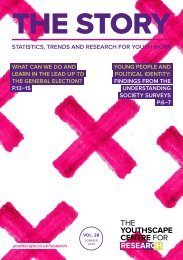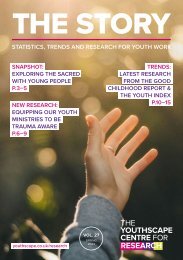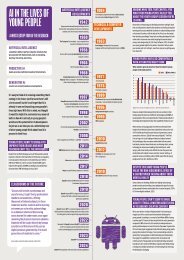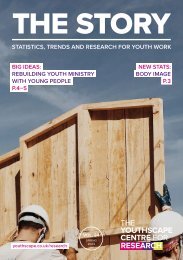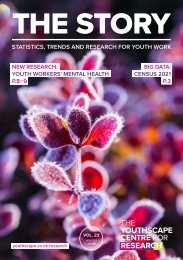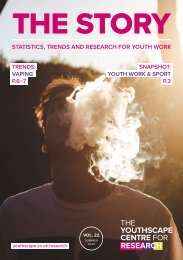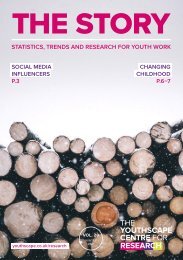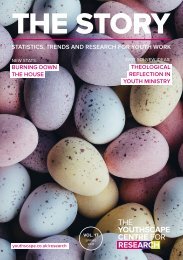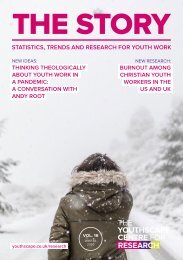The Story Vol 21
The big picture on Russia and Ukraine. Economic precarity for the next generation. Plus findings from 500k young people surveyed on deprivation, education, and aspiration.
The big picture on Russia and Ukraine. Economic precarity for the next generation. Plus findings from 500k young people surveyed on deprivation, education, and aspiration.
Create successful ePaper yourself
Turn your PDF publications into a flip-book with our unique Google optimized e-Paper software.
Black and Asian<br />
children and<br />
those in deprived<br />
neighbourhoods are<br />
more likely to prioritise<br />
having a good job/<br />
career in the future.<br />
Having a good job or career was the most<br />
common priority for those surveyed, with 69%<br />
saying this was a priority for when they grow<br />
up. This is even higher among ethnic minority<br />
children and those from a deprived background.<br />
75% of Asian children and 76% of black children<br />
said this was one of their top future priorities,<br />
compared with 68% of white children.<br />
72% of children in the most deprived<br />
neighbourhoods said this, compared with 68%<br />
of children in the most affluent neighbourhoods.<br />
Children in care<br />
Children and young people in care were more<br />
likely than other children to be unhappy with<br />
their family life (14%) compared to 6% of other<br />
children.<br />
<strong>The</strong> top three future aspirations among children<br />
in care were:<br />
1. A good job or career (66%)<br />
2. Enough money to buy the things they need<br />
(60%)<br />
3. Good friends (57%)<br />
Children in care were also more likely to say that<br />
having a nice home in the future is one of their<br />
main aspirations (43%) compared with 36.5% of<br />
those not in care.<br />
<strong>The</strong>y were less likely than other children to<br />
say that a healthy environment and planet is<br />
important for their future (14% vs. 22%).<br />
So what?<br />
Sometimes work with<br />
young people in lowincome<br />
areas is aimed<br />
at ‘raising aspirations’<br />
but these results<br />
suggest these young<br />
people are more likely<br />
than their affluent peers<br />
to prioritise education<br />
and a future career. For<br />
some, it may be less an<br />
issue of low aspirations<br />
and more an issue of<br />
how to achieve their<br />
goals.<br />
P.5





